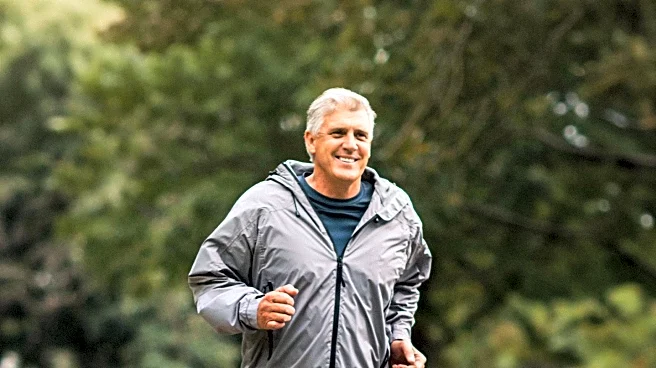What's Happening?
Recent research has identified 12 biological hallmarks that define the ageing process, with exercise being a significant factor in combating these processes. Initially, in 2013, researchers outlined nine
cellular processes that contribute to ageing, which have now been expanded to twelve. These processes include genomic instability, telomere attrition, and mitochondrial dysfunction, among others. Exercise has been shown to positively impact each of these areas by enhancing DNA repair, maintaining telomere length, and improving mitochondrial function. The research highlights exercise as a universal remedy, capable of preventing or treating at least 26 common chronic diseases, such as cancer and osteoarthritis.
Why It's Important?
The findings underscore the critical role of exercise in public health, particularly as a non-pharmaceutical intervention to slow down ageing and manage chronic diseases. This has significant implications for healthcare policy and individual health strategies, potentially reducing healthcare costs and improving quality of life. By promoting exercise as a preventive measure, there could be a decrease in the prevalence of age-related diseases, leading to a healthier, more active ageing population. This could also influence the development of public health campaigns and initiatives aimed at increasing physical activity across various demographics.
What's Next?
As the understanding of exercise's benefits continues to grow, it is likely that more targeted exercise programs will be developed to address specific ageing processes and chronic conditions. Healthcare providers may increasingly incorporate exercise prescriptions into treatment plans, and policymakers might advocate for more accessible fitness resources in communities. Further research could explore the molecular mechanisms by which exercise influences ageing, potentially leading to new therapeutic approaches that mimic these effects.
Beyond the Headlines
The research also touches on the broader implications of exercise on mental health and cognitive function, suggesting that regular physical activity could enhance brain health and resilience against neurodegenerative diseases. This highlights the potential for exercise to be integrated into mental health treatment plans, offering a holistic approach to health that encompasses both physical and mental well-being.










